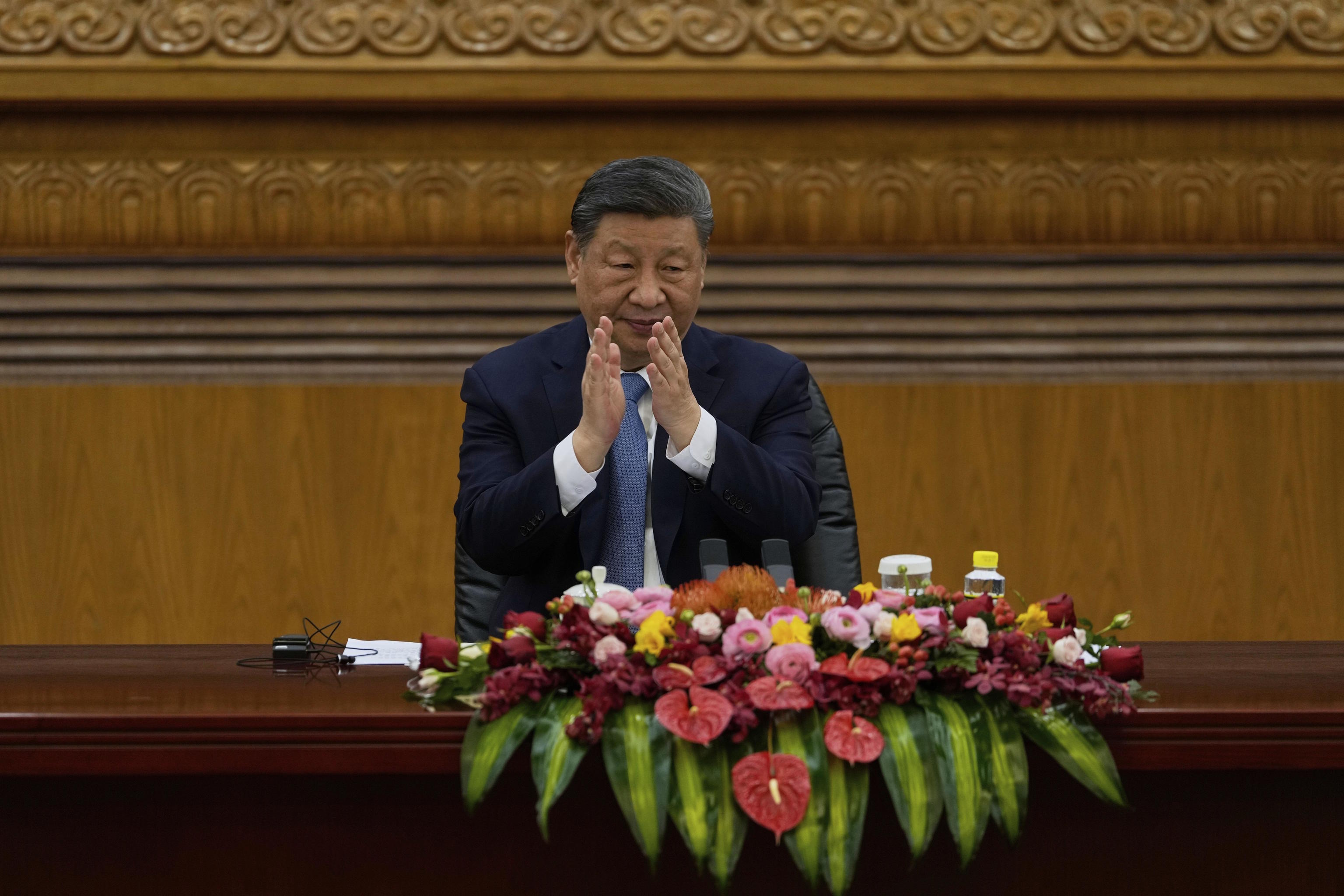In these tumultuous times, while winds blowing from the hegemonic superpower, the United States, bring protectionism and tariffs, in the world's second-largest economy, China, which aspires to lead a change in the global order, is pushing for openness and globalization. Beijing's strategy focuses on offering stability and confidence in the face of the chaos caused by every move of U.S. President Donald Trump.
The Chinese regime is stepping up its global seduction policy. In recent days, the spotlight has been on international companies. The week started in Beijing with an economic forum attended by 80 top executives from major international conglomerates. Some then traveled to Shanghai for another investment event. Others went to Hainan Island to participate in the Boao Forum, where political and academic leaders from over 60 countries also gathered.
The main event was back in Beijing on Friday, when President Xi Jinping met with global CEOs. A month ago, in an initial move towards openness domestically, the Chinese leader also hosted a highly anticipated meeting with business leaders from the country's major technology companies.
"China will remain a fertile ground for foreign investment for a long time," Xi told the foreign entrepreneurs. The president also took several jabs at the United States, although without directly mentioning Trump. "Some countries use tariff barriers and force companies to make decisions that violate economic laws," he stated as reported by Chinese state media.
Leading business figures such as Tim Cook (Apple), Albert Bourla (Pfizer), Stephen Schwarzman (Blackstone), Bob Sternfels, and Rajesh Subramaniam (FedEx) have paraded through the Chinese capital in recent days. Also, high-ranking representatives from many other major corporations like Saudi Aramco, Maersk, BMW Group, Airbus, Mercedes-Benz, and HSBC.
"I hope you can make independent and self-sufficient business decisions and jointly promote the construction of an open and stable global economic order," said Xi, who called on foreign multinationals to "take pragmatic actions and resist acts that push back the wheel of history, such as unilateralism and protectionism."
The Chinese president pledged that his country would "further lower the market access threshold this year" and ensure "fair competition by addressing excessive competition in certain industries," starting with foreign companies being able to legally obtain production resources on equal terms as Chinese companies and participate fairly in public procurement.
Xi's commitment, amid Beijing's urgent need to attract foreign investment once again, aligns with the action plan published last week by China's State Council: facilitating cross-border data transfers, removing all access barriers in the manufacturing sector, and the promise that foreign companies and their products will receive equal treatment in public procurement processes, a long-standing complaint from international companies.
According to official data from Chinese authorities, foreign direct investment decreased by over 20% year-on-year in the first two months of 2025, following an annual drop of 27% in 2024. Foreign companies' investment in fixed assets also fell by 10%.
During the meeting in Beijing with the business leaders, the Chinese leader was accompanied by other high-ranking officials from the ruling Communist Party such as Foreign Minister Wang Yi, Commerce Minister Wang Wentao, and National Development and Reform Commission head Zheng Shanjie, the top official in charge of economic planning.
